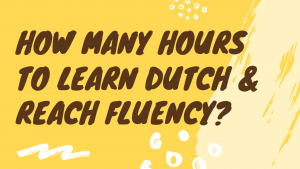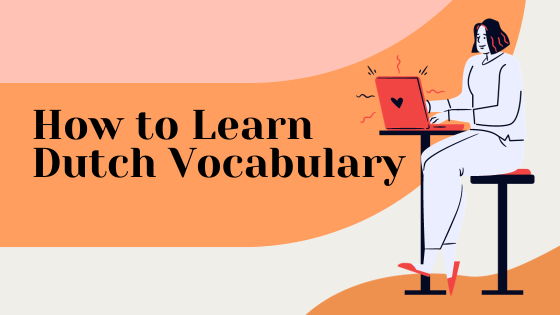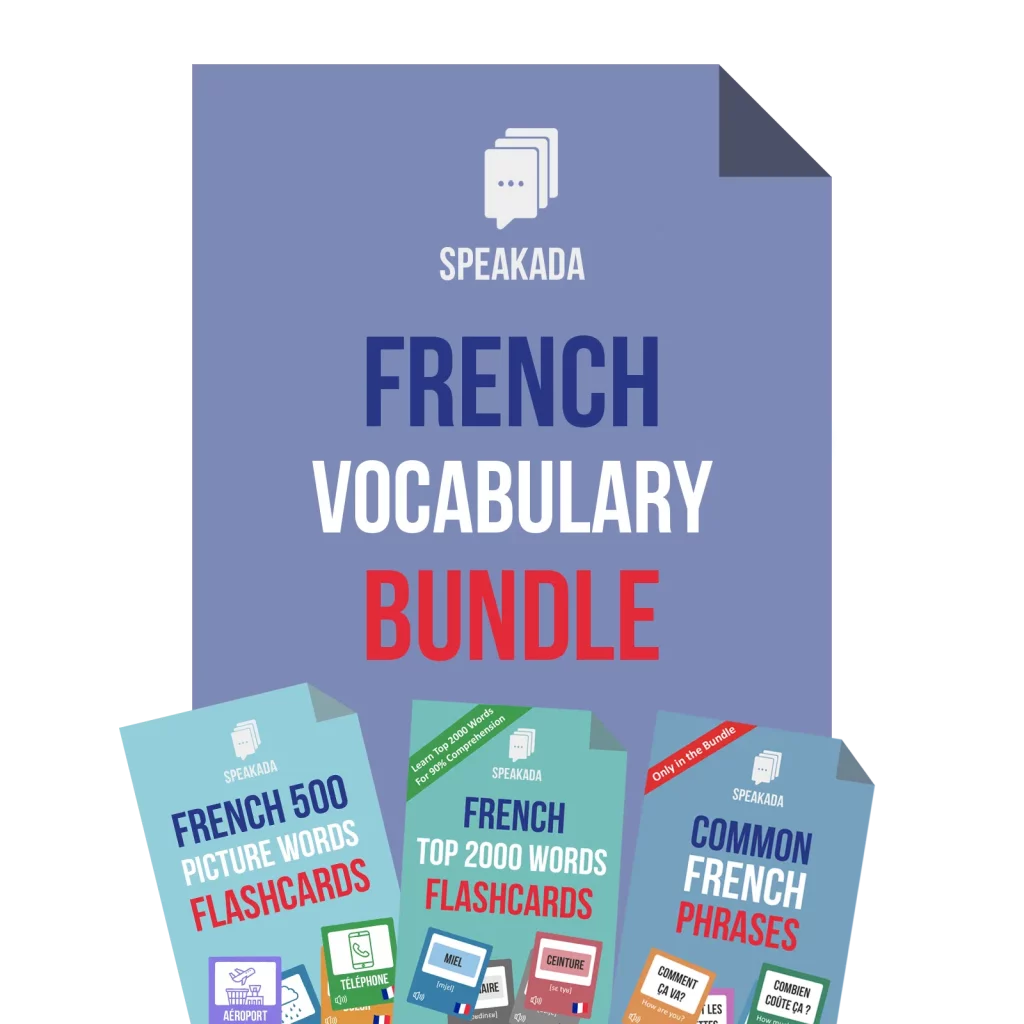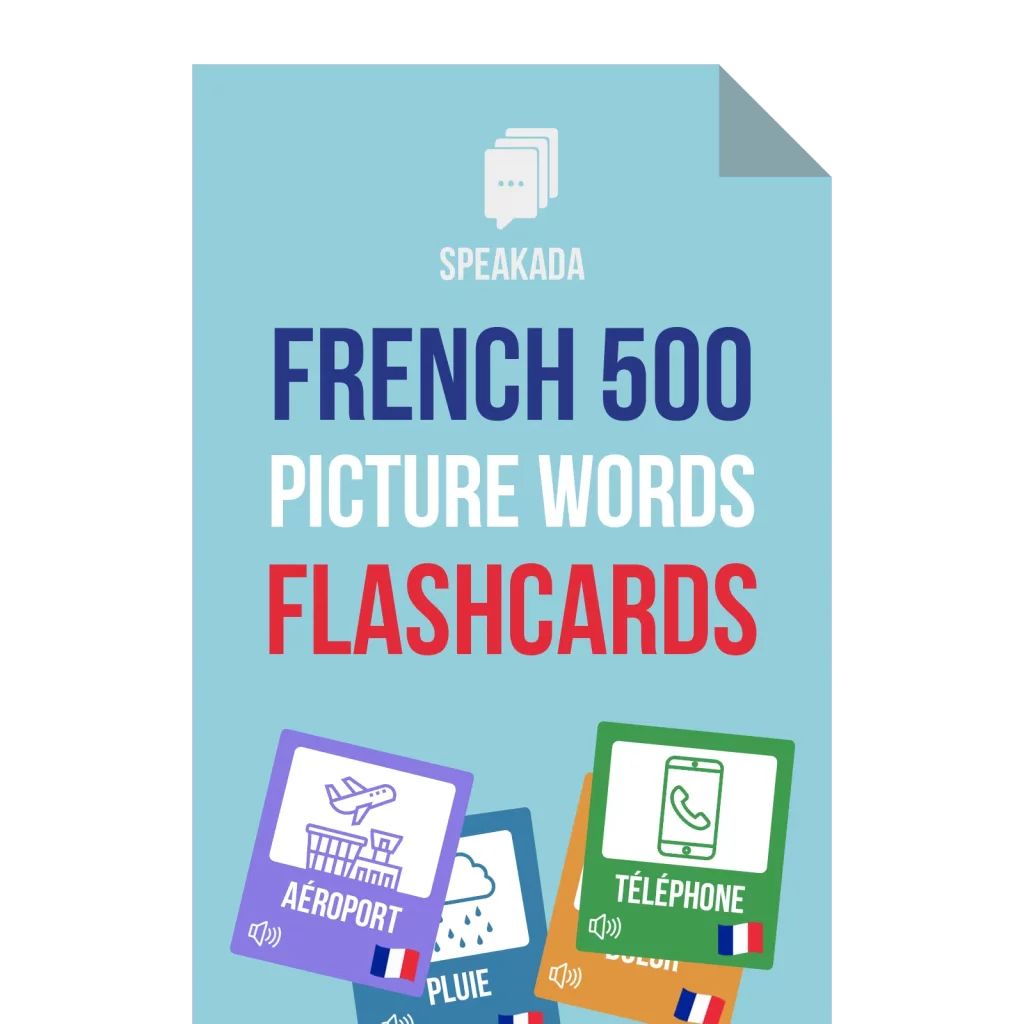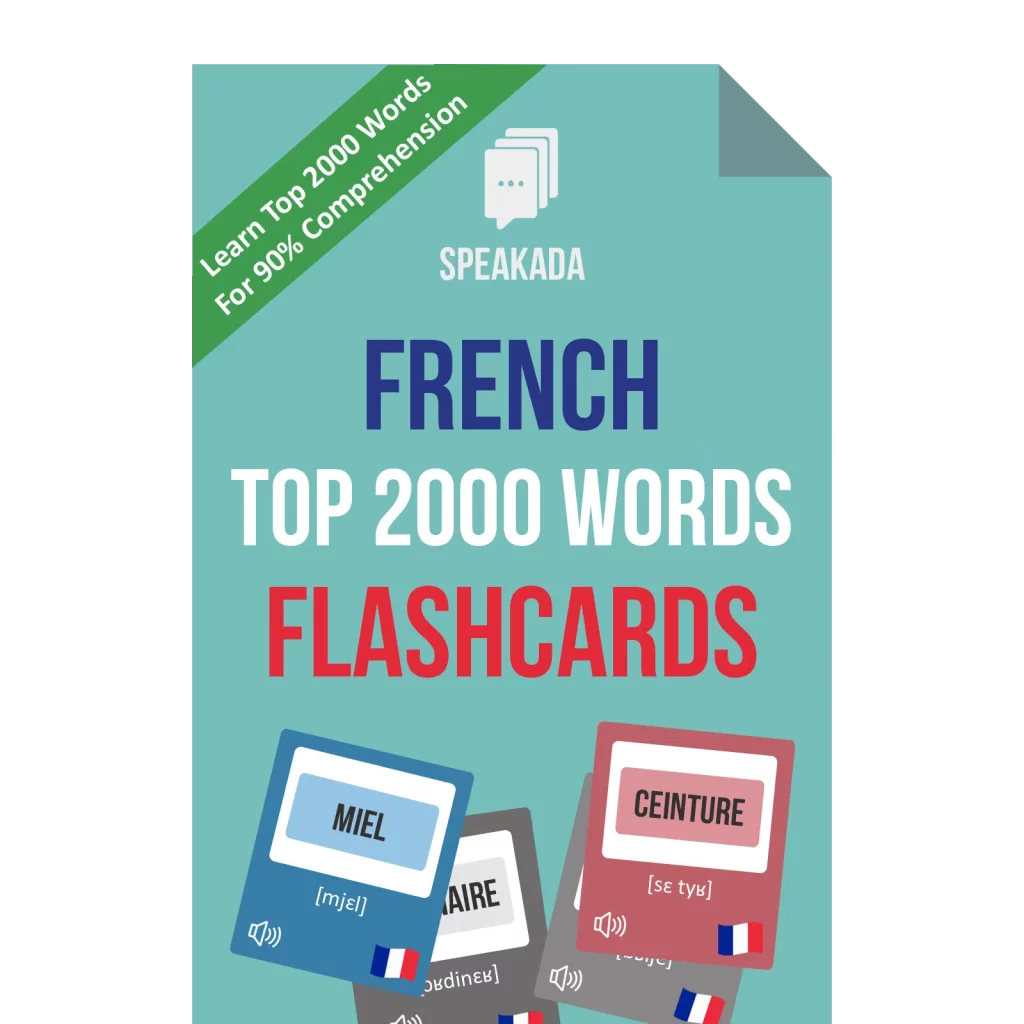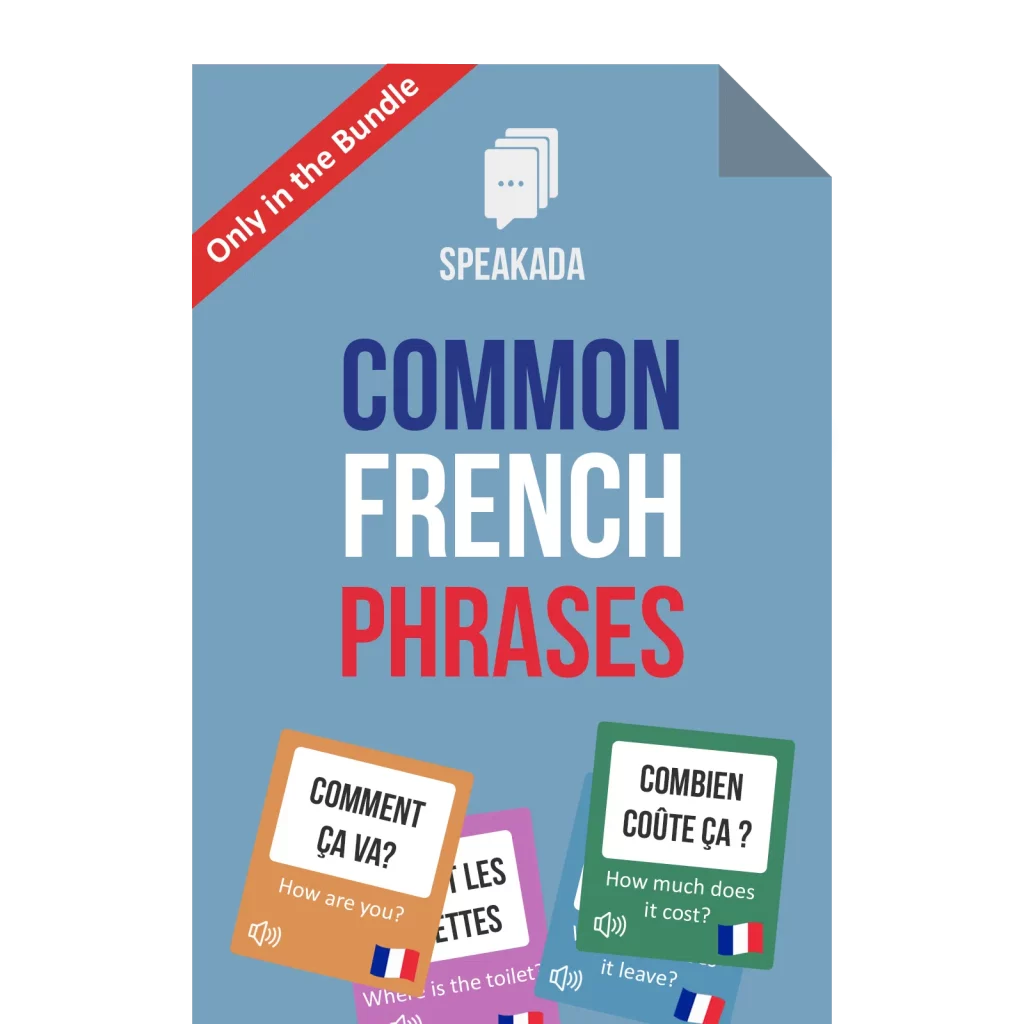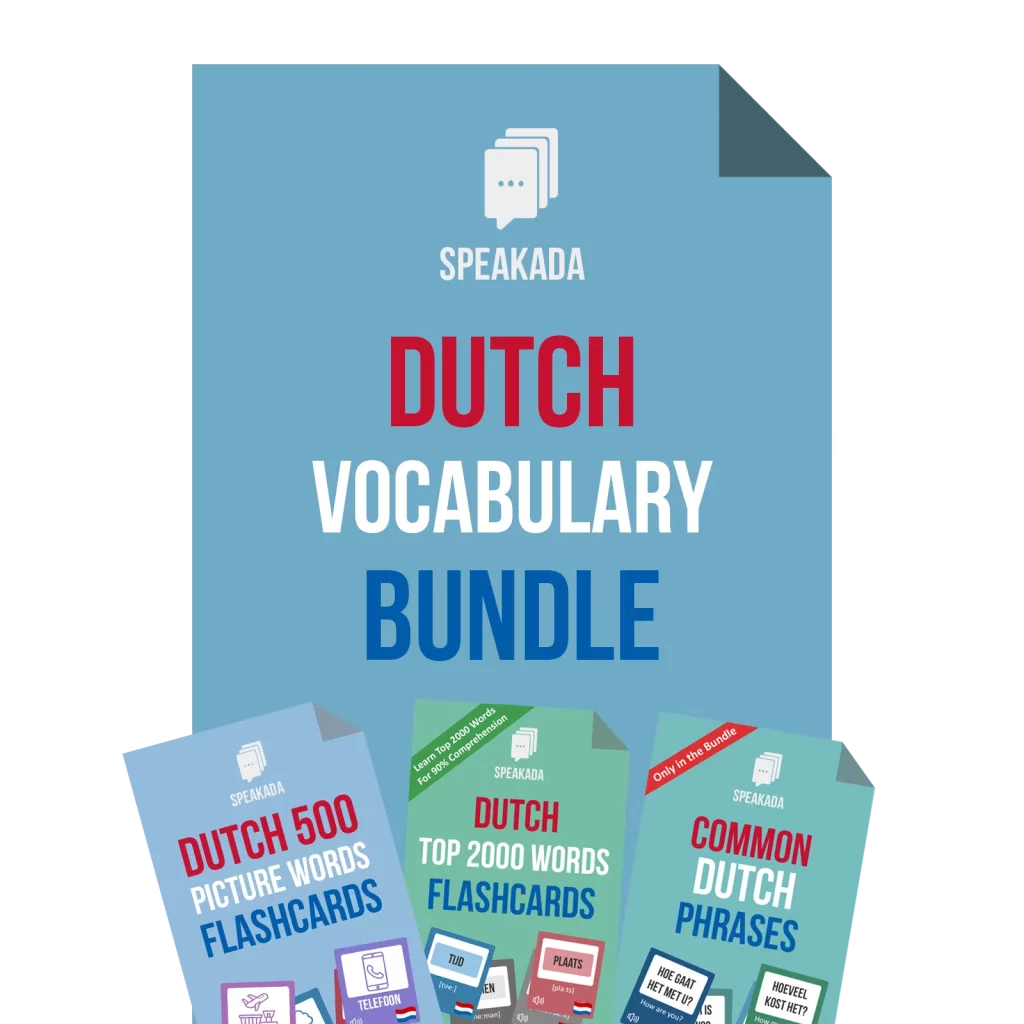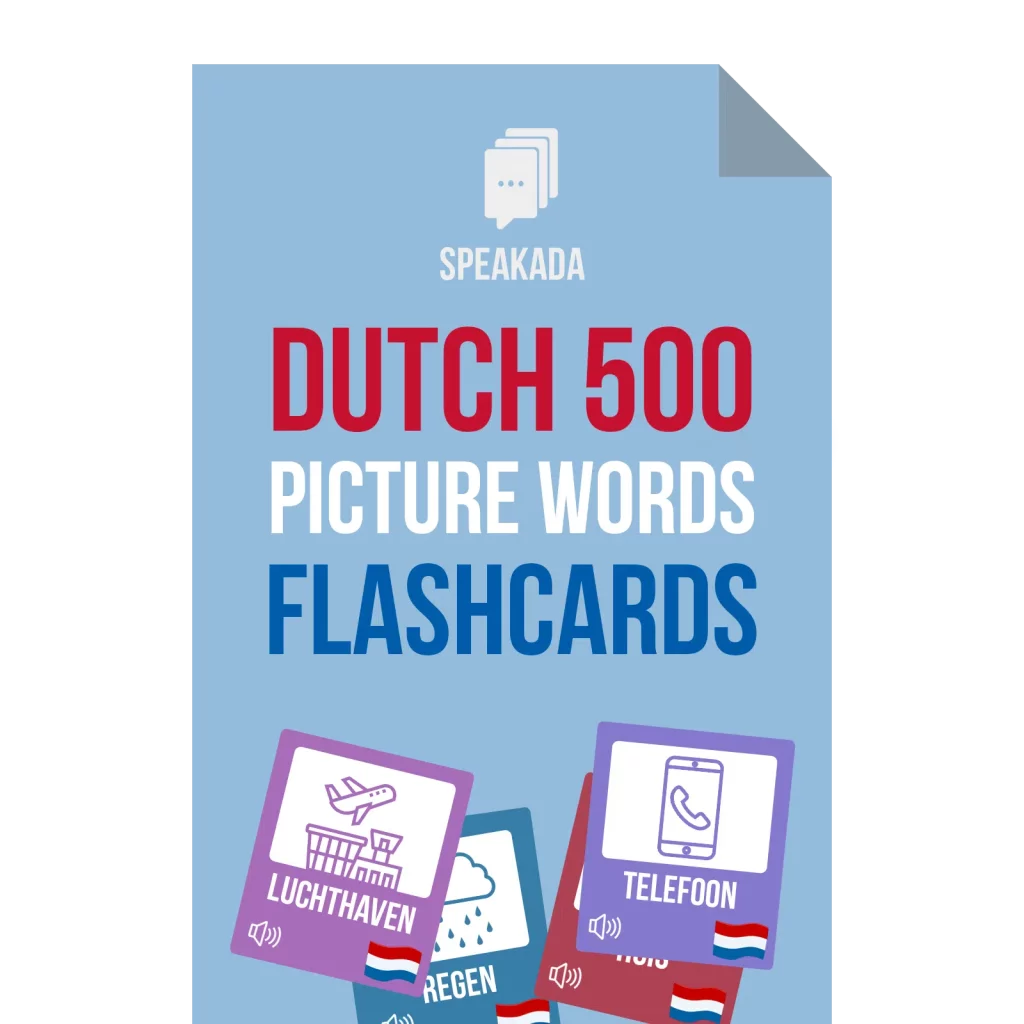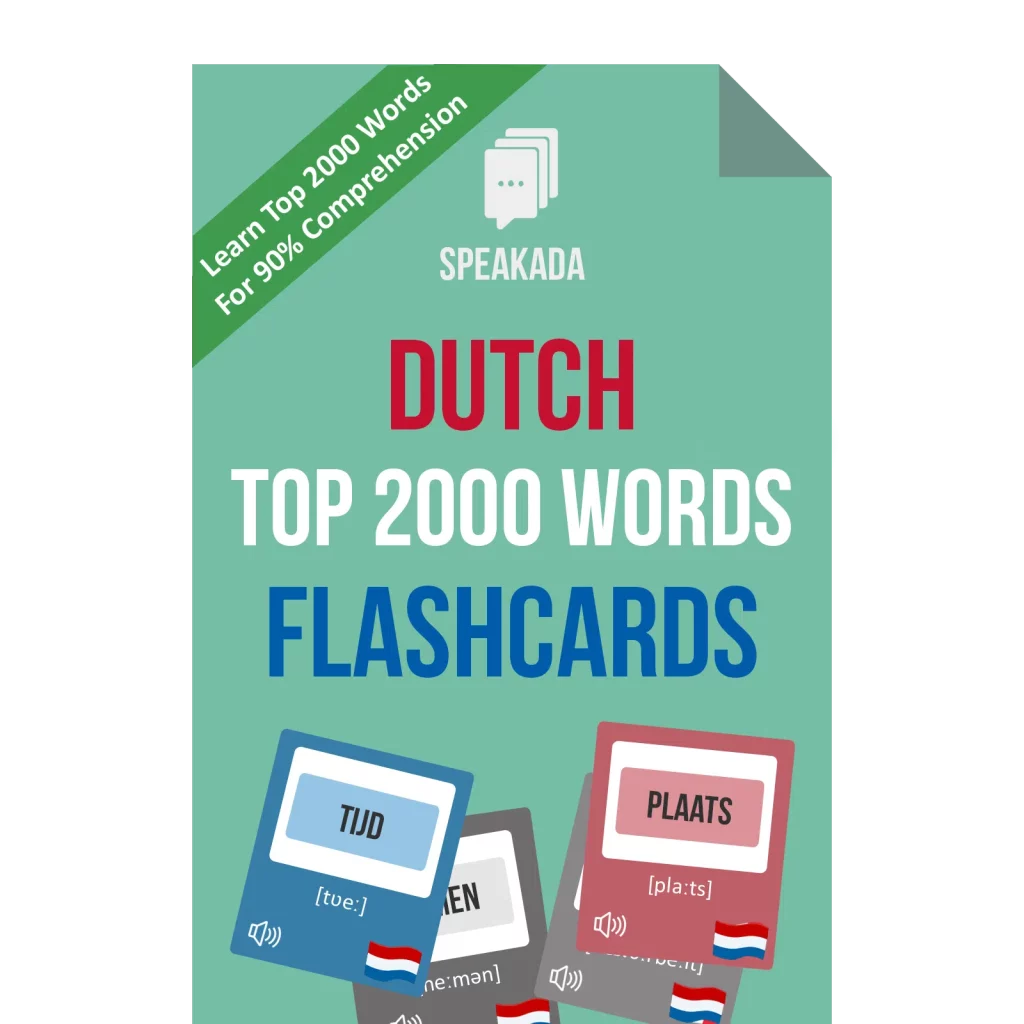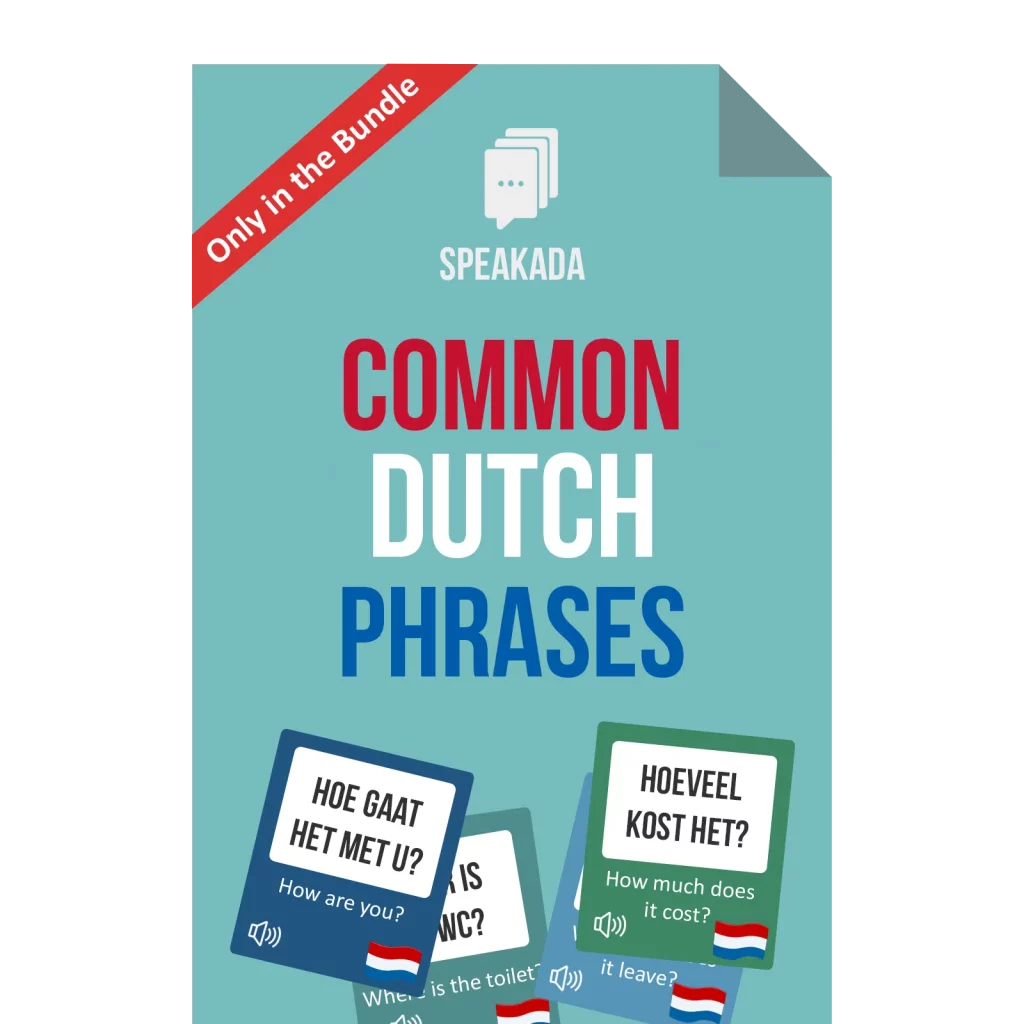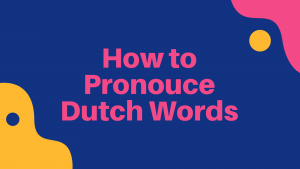How to Learn Dutch Vocabulary
If you’re new to learning Spanish, or if you want to improve your Dutch, then you’re probably wondering to yourself, how to learn Dutch vocabulary?
The vocabulary of Dutch includes the words and phrases that are the building blocks of communication, when we talk in sentences.
Studies have shown that people with a much wider vocabulary in any language tend to be perceived as being more intelligent, more persuasive, and having more influence with the people around them.
The reason for this is when you have a much wider vocabulary, you’re able to express yourself in a variety of ways. You can communicate ideas with an array of colorful language, and words that can describe your point in an effective way.
In this article, we’ll discuss how to learn Dutch words the most effective way.
1) Use Spaced Repetition to Learn Dutch Vocabulary
If you want to learn Dutch vocabulary efficiently, then consider using Spaced Repetition. There’s been a lot of research in recent decades, about the effectiveness of Spaced Repetition techniques in order to overcome the human limitations of our memory.
A famous researcher named Ebbinghaus some time ago, discovered that our memories decay over time when we learn new information. Our memories fade over time whether it’s memories about random facts, or new words and vocabulary.
As time passes on, our minds and our memories tend to forget this information. The rate at which we forget things is not in a linear downward way, like a straight line, but rather in a very fast, and then exponentially decaying type way.
Ebbinghaus discovered this phenomenon and called it the Forgetting Curve. This curve can also be applied to learning new vocabulary. When we learn new words, after a very short period of time, we tend to forget a large portion of it. Then, as time goes on, we’ve largely forgotten a lot of it, especially if we haven’t revised that information.
You’ve probably experienced this yourself when you’ve crammed for exams. The night before the test, you memorize as much as you can. Then, you use that information just before and during the test. However, immediately after the test, you forget a large portion of it, because you don’t need it anymore, and don’t revise.
This sort of thing occurs as well when we’re trying to learn new vocabulary in any language. So this Forgetting Curve is something that we have to overcome.
That is where Spaced Repetition comes in.
Ebbinghaus also discovered and suggested that the best way to overcome the Forgetting Curve was to use Spaced Repetition systems. Spaced Repetition means that once you learn a new word, or piece of information, it’s best to then revise that information almost immediately in a short period of time. Then, as time goes on, we can gradually increase the space or intervals of revising that information, especially for information which we remember easily.
Spaced Repetition also has a system for those types of words or facts that we’re having a hard time remembering. For those difficult words or hard-to-remember information, we can decrease the space or interval and revise these more frequently.
That’s basically spaced repetition in a nutshell.
There are a number of Spaced Repetition software programs that are available. If you download and use these apps and software, then you can take advantage of Spaced Repetition to learn vocabulary in any language.
A program often used by language learners is called Anki. It’s a free and open source program that’s highly customizable and very effective in terms of its Spaced Repetition algorithm.
2) Focus on Frequency of Words
Another effective way to learn Dutch vocabulary is to focus on the 20% of words that give you 80% of your results.
In Dutch there are literally tens to hundreds of thousands of potential words that you could learn. If you’re a beginner or lower intermediate, it doesn’t make sense at all to learn those words at random or in alphabetical order.
If you do this, you’ll end up learning very rare, uncommon words that you won’t use in day to day speech.
That’s why word frequency lists can be so useful.
Academic researchers and linguists such as Paul Nation, and others have examined different languages, and have found that there’s a pattern in terms of how we use language and words in day to day speech and in popular media.
They’ve found that you only need to learn the top most frequently used 1000 to 2000 words in a language in order to learn the 80 to 90% of words that you’ll come across in day to day speech, and in popular texts, such as books, TV, radio, and newspaper.
So, if you’re a beginner or low intermediate in Spanish, an effective strategy is to make sure that you first learn the top 1000 to 2000 Dutch words. This can give you the most results for the smallest amount of effort.
3) Learn Common Phrases Dutch Vocabulary
If we extend the second point about learning common Dutch words, then the next logical step is for you to learn common Dutch phrases. This will help you achieve fluency in Dutch.
The Dutch vocabulary doesn’t just consist of single word units. There are also phrases which make up a number of words that are commonly used in day to day speech. These phrases are what some linguists call lexical chunks. These phrases, or lexical chunks, have one sort of meaning, and native speakers tend to easily understand these phrases as a whole.
So if you want to master the Dutch vocabulary, it also helps to learn the most common Spanish phrases, so that you’re learning the vocabulary in context. Common Dutch phrases are useful because you can actually use sentences and communicate whole ideas to native speakers.
We’ve actually done the research and examined a number of the top phrase books and language guides, in order to compile the most common Dutch phrases. This will help you to easily master these Dutch common phrases vocabulary.
4) Specialized, Personalized and Relevant Dutch Vocabulary
Once you’ve already learned the top Dutch phrases, and most common Dutch 2000 words, the best way to learn Dutch vocabulary is to improve your vocabulary by focusing on words that are most relevant and personalized for you.
These tend to be Dutch vocabulary that are specialized to your area of expertise, your interests, and your hobbies. So at this point, it’s recommended that you then try and find different domains that are relevant and interesting for you and your life, in Dutch.
Go through each domain one by one. Try and master the Dutch vocabulary encountered in each domain, each area of expertise, each genre so that you can find new words that are relevant. Over time, you’ll discover that you can understand and communicate really well in those areas.
If your goal is to speak well in Dutch, then it probably helps to have your first area of focus be content and contexts in which people are conversing in a natural, conversational way.
So you might want to expose yourself to watching interviews with people on the street, with YouTube videos of vloggers talking about their everyday lives, or even drama shows where there are people living their daily lives and interacting with other native speakers.
From there you can find vocabulary that is new to you. Then of course, you can use Anki or another Spaced Repetition app or software to reinforce your learning. After you encounter new vocabulary that you want to learn, then add those words into Anki, and after, you can revise those collected, personalized vocabulary. As a result, you will focus on relevant vocabulary that you can memorize for the long term.
After you master this first domain, you can go onto more technical or specialized fields that are of interest to you. For example, if you’re a scientist, you could open up a science textbook or go to conferences or listen to talks about science. If you’re into sports, you could watch certain sports games and matches, then learn the unique vocabulary there.
You’ll find that as you expand your Dutch vocabulary in one area or one genre, it actually helps and can be translated to other genres. Words, phrases and styles of speaking and writing will overlap across the different genres, so your vocabulary gets bigger and more comprehensive over time.
You’ll find it easier to comprehend and communicate within those different contexts the more you expand your domains and circles of competence.
The Bottom Line: How to Learn Dutch Vocabulary Effectively?
We believe that the following process is the best way to learn Dutch vocabulary. The steps are:
- Using a Spaced Repetition system so you can memorize Dutch words, especially at the beginning.
- Learning the most common 2000 Dutch words.
- Mastering the top Dutch phrases so that you can request things, ask questions and respond in a natural way.
- Personalizing your Dutch vocabulary learning according to different areas or genres, and mastering each of them by tackling them one by one.
You May Also Like
More Anki Dutch Articles

Best Dutch Anki Decks 2024 That You Need Now

How to Learn Dutch Vocabulary

How to Use Anki for Dutch
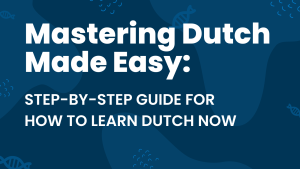
Mastering Dutch Made Easy: Step-By-Step Guide for How to Learn Dutch Now

How Long Does It Take to Learn Dutch Now
